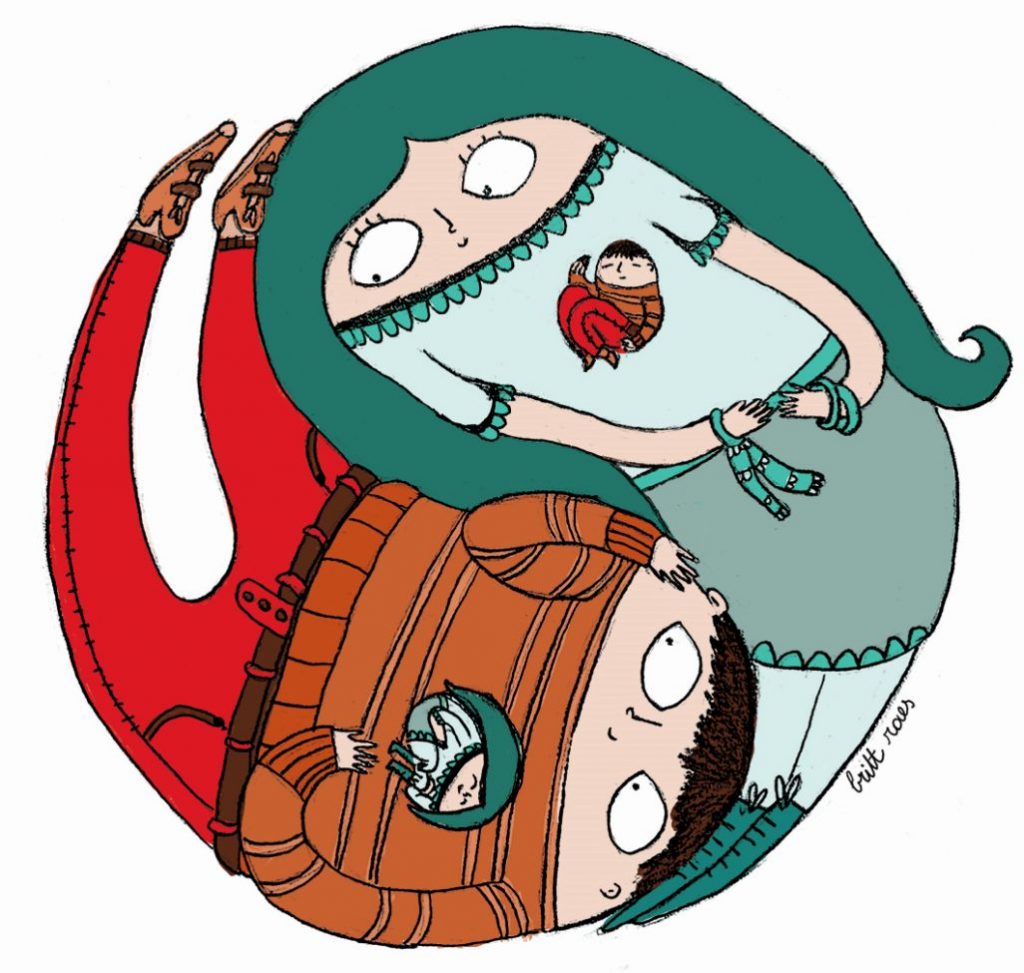Our performance She said, he said is about the difference between men and women. It is a performance that creates dust before you even play it.
When clichés become taboo
At a time when much attention is rightly being paid to (trans)gender equality, it has often gone awry that in a story about marriage we opt for the classic couple picture. "Surely it can also be about a gay couple," it sounds. But the show is not primarily about relationships, but about male-female differences. We find it important to keep talking about those differences, just in the search for equality. Because as fluid as we like to see it become between masculine and feminine energy, if we don't acknowledge the difference it just goes wrong. There goes another performance, Together-together (but different), for that matter, all over: only by nurturing differences can you bridge them, rather than letting them cause wars below the waterline.
Several years ago, we did a tour commissioned by The Family Association specifically about and for fathers. It was an adapted version of Parenting, just do it. Even there, this voice came up a few times: "Amai, a lot of clichés huh?"

Right! Because that's what the public spontaneously and massively offers when you ask for input. Especially on topics like gender. Cliché suggestions abound. Because that's exactly what audience members want to see us dig into.
So yes, we play them all. The husband who has to smell that something is bothering his wife. A father who sends his child to his mother when he doesn't know what answers a thorny question. The husband with his mistress at work while his wife is pregnant.
Via cliché to nuance
If we don't play them, then we are playing theory and not truth.
The trick, of course, is to play through to the layers beneath the clichés, because then we get to the core. So we hear and see (both in suggestions and play) nuances just as much.
A wife who is not only annoyed by her husband who takes a nap on the couch despite the to-do list, but is lollygagging about it.
And the absent dad (because careerist), who at the end of his speech to his teenager with a broken heart, lets it shine through that he does know that grief eventually has to be able to flow away. That it does not disappear thanks to, but only gets buried under the pressure-pressure-pressure being.
Or the child who really doesn't get traumatized by a (proverbial) solid lash under his hole.
In scenes about work and parental leave, clichés come out at their worst. In theory, there are many opportunities today for men, to make more time for their children. Society seems to be open to this and policy is with them.
Take clichés seriously
But if you ask about it, negative reactions from one's real-life surroundings are rampant from the audience:
"Allé mate, still weird to earn less than your wife. "
"What you work less now, you can make up for when you retire normally, colleague."
"Haha, then shall we suddenly talk about your resignation."
"Janet."
Or the more subtle one, which also keeps coming back: "Fine dear, then you can remodel our house all by yourself after all."
The danger of clichés is generalization, stereotyping and hardened polarization.
The danger of ignoring or suppressing clichés is that theory and reality become miles apart!
Playful polarization
Clichés are obvious indicators of differences.
It is through the recognition of difference that we come to equality. For "the masculine" and "the feminine" are not equal. On the contrary, they can enrich each other immensely. Men and women can enrich each other in this sense as a couple.
And much more than that, any partner, in any type of relationship, can become stronger by appealing to both the masculine and feminine within themselves.

Exploring differences can be done by going lollygagging on one side to better understand it, and therefore actually the other side. Playful, temporary, polarizing.
That's what we in She said, he said do and not a little bit. The audience is also radically divided into male and female halves. Don't panic, you decide whether to stand in your masucline or feminine self.
Andne ... good luck playfully polarizing at Christmas dinner over other topics. Peace on earth begins there, doesn't it?

